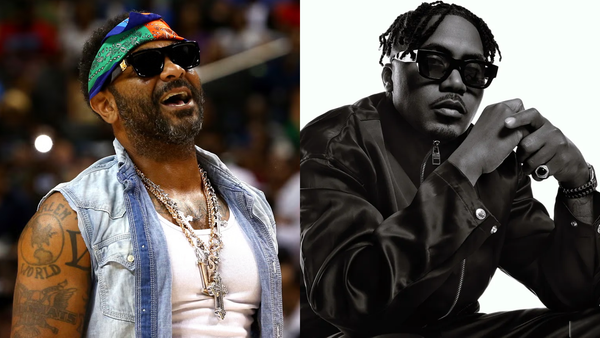The Price of the Brick: An Autopsy of the Clipse Album Rollout
by SPJ
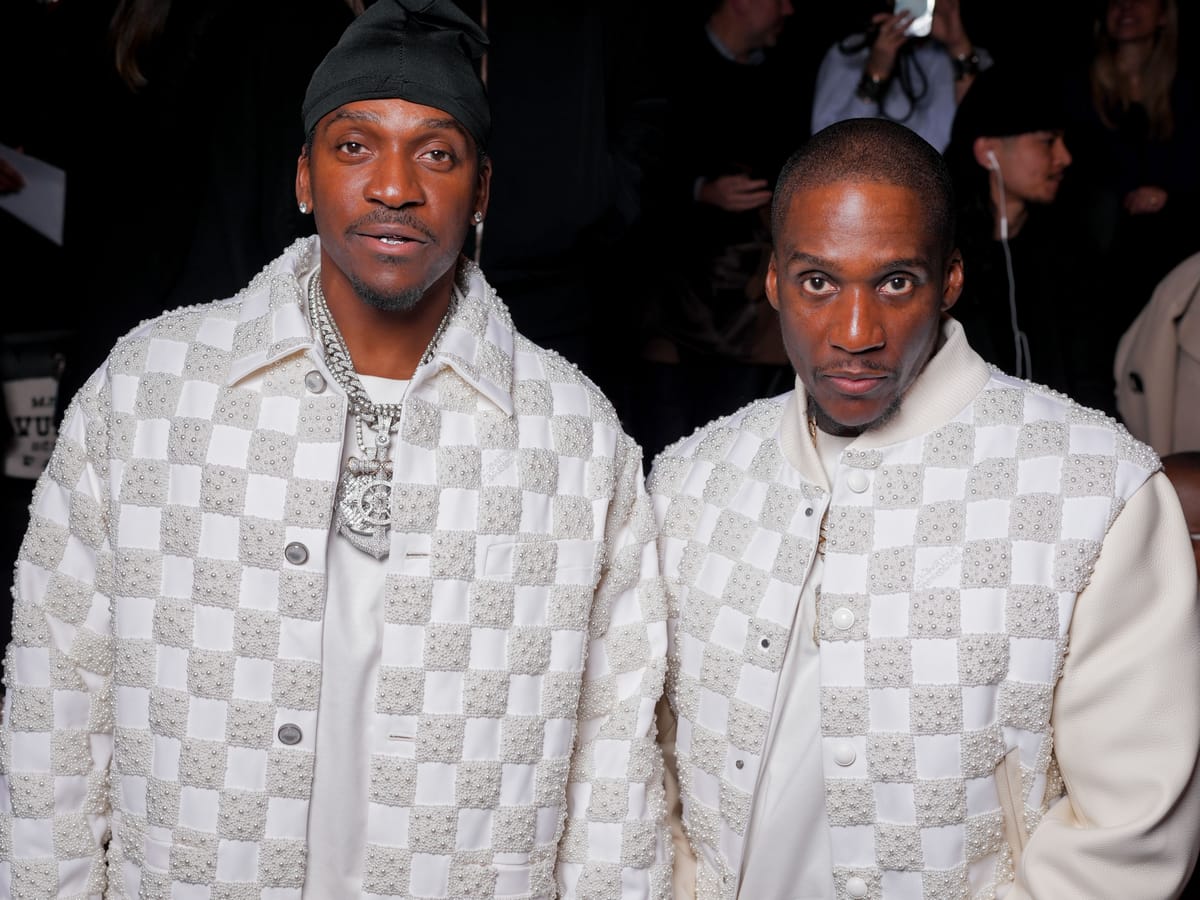
For the better part of a decade, I've been annoyed with how music finds its way to us. Everything is an algorithm, and every rollout is a desperate scramble for 15 seconds of TikTok relevance. The whole process has been stripped of its art, its mystique, and its respect for the listener.
I was starting to believe the album rollout as a cultural event was dead, a relic of a bygone era like liner notes and CD jewel cases. And then the Clipse came back.
This Substack is reader-supported. To receive new posts and support my work, consider becoming a free or paid subscriber.
What Pusha T and Malice did with Let God Sort Em Out wasn't just a comeback, it was a goddamn resurrection. It was proof that the "old way" didn't need to be erased, it just needed to be adapted by artists with enough conviction to see it through. This was a patient, calculated, and frankly, disrespectful masterclass in taking back control.
The Backdrop: A Sick and Dying Game
You have to remember the world they stepped back into. The rap conversation in 2024 was dominated by the Kendrick Lamar and Drake beef. On one hand, the feud devolved into a meme war and a corporate, business dispute disguised as a rap beef. But on the other hand, Kendrick’s side of the battle did something essential: it dragged the mainstream conversation back to the art of rapping, recentering the narrative on lyricism, substance, and cultural authenticity.
He reminded everyone what a real, high-stakes lyrical war felt like. In doing so, he inadvertently tilled the soil, creating a hunger for the very essence that the Clipse were about to supply in its purest form. Into that void, the Clipse returned, and their first move was the most powerful one imaginable: silence.
While the world was loud, they were quiet. Whispers started in late 2023 that they were in Paris, holed up with Pharrell Williams. Just the faint, terrifying rumor that something wicked was being cooked up in a French studio created a vacuum for genuine anticipation to grow.
Act I: Owning the Narrative (and Themselves)
When they finally decided to talk, they didn't hop on a podcast with the flavor of the month; they sat down with Vulture and GQ. This was a deliberate move to frame their return as a necessary cultural event about maturation, legacy, and the unfinished business of two brothers who happen to be two of the greatest rappers alive.
And then came the biggest flex of all, the ultimate "receipt" of their conviction. We learned they paid a reported seven-figure sum to buy themselves, and their album, out of their contract with Def Jam after the label got nervous about a Kendrick Lamar feature.
Think about that.
In an era where Drake is suing UMG over promotion, the Clipse put their own money on the line, a life-changing amount of it, to protect the integrity of their art. They walked away from a major label deal and straight into a partnership with Roc Nation, securing ownership of their masters in the process.
This wasn't just a business move. It was a statement of principles that echoed through the entire industry.
Act II: The Sound of Inevitability
With the stage set, they let the music do the talking.
"Ace Trumpets" was the warning shot, dropped with a stark performance on COLORS. It was pure, uncut Clipse for the day ones, a reminder of who they are.
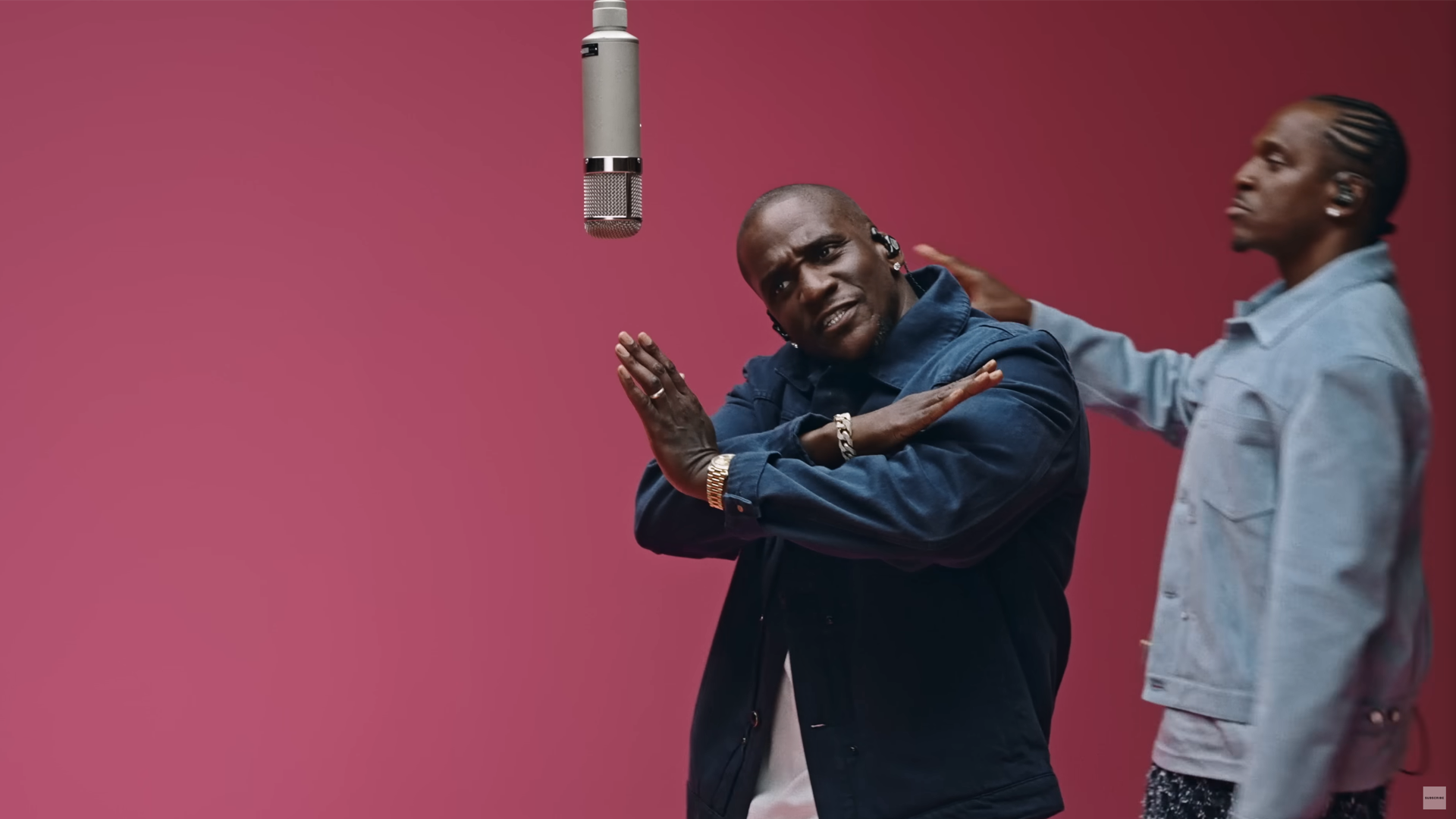
"So Be It" was the escalation, arriving with a cinematic, black-and-white video. But this wasn't just an artistic statement, it was a surgical strike. Pusha T, never one to let a slight go unaddressed, used his second verse to take direct aim at Travis Scott.
Citing a lack of loyalty after Scott allegedly hid a Drake verse dissing their producer Pharrell, Pusha made it personal. With pointed bars referencing Scott's ex, Kylie Jenner, and his album Utopia, Pusha drew a clear line in the sand. It wasn't a random shot, it was a calculated execution that reinforced the album's central theme: loyalty is everything.
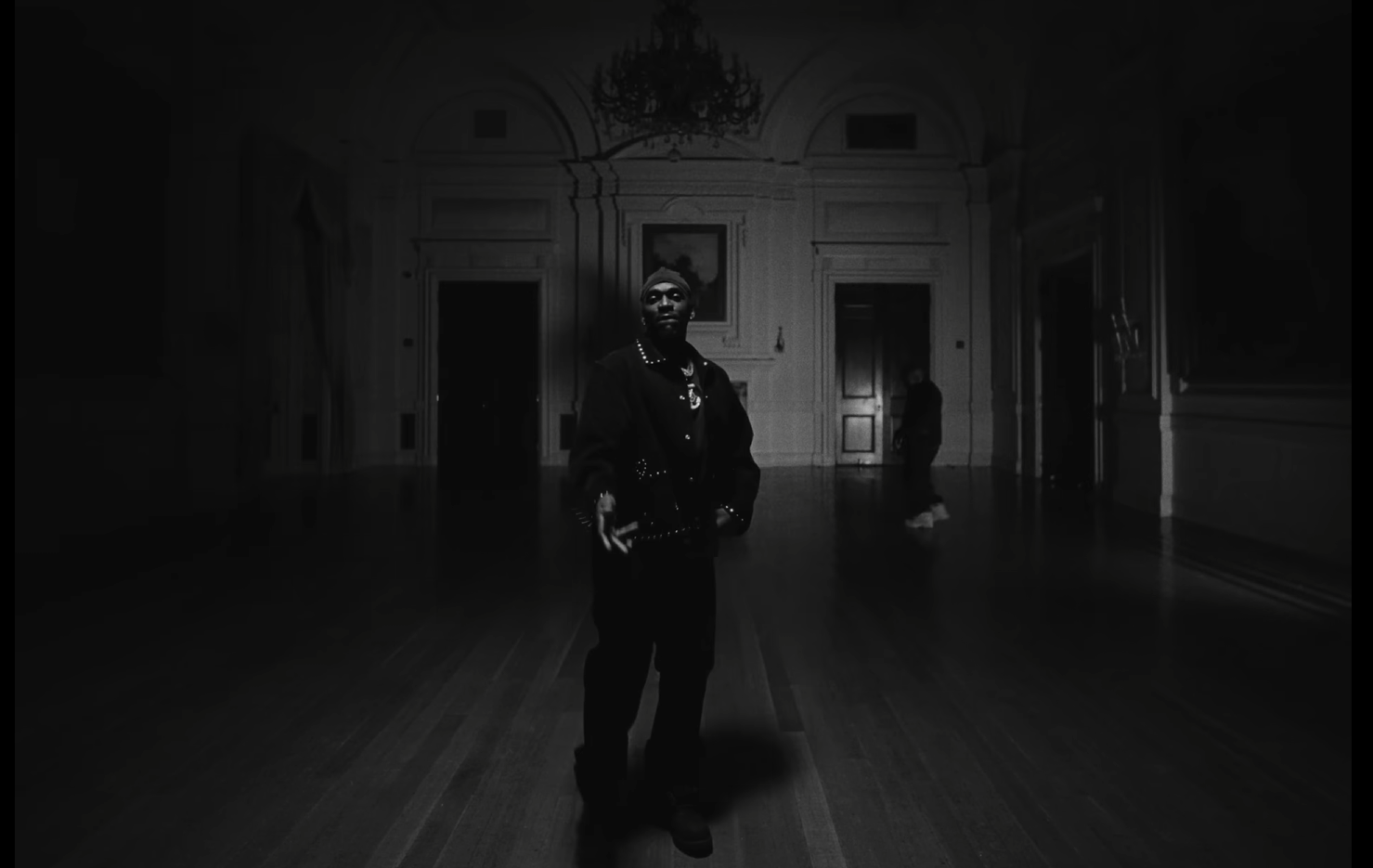
By the time release week hit, the hype was organic and deafening. They capped it off with a legendary NPR Tiny Desk Concert, another move that prioritized raw musicality over spectacle. It even ended in nostalgic fashion with the duo closing their set with the seminal Clipse track Grinding. As the song came to a close, the music stopped and the drummer went to a cleared out portion of a desk and pounded the beat out just like so many of us used to do on the lunchroom table.
And then the album dropped.
The Ghost of Past, Present, and Future
What makes this all so potent is the context of their history. Their last album, 2009's Til the Casket Drops, saw them working heavily with other producers, including a major look from Kanye West. It was a good album, but it felt like a dilution.
Fifteen years later, Kanye's journey has been tumultuous, to say the least. His creative genius has been overshadowed by public controversy, making that past association a complicated part of the Clipse legacy.
So what did they do for their grand return? They went home.
Let God Sort Em Out is executive produced entirely by Pharrell Williams. This was a creative and spiritual course correction, a statement that the foundational element was the only thing that mattered.
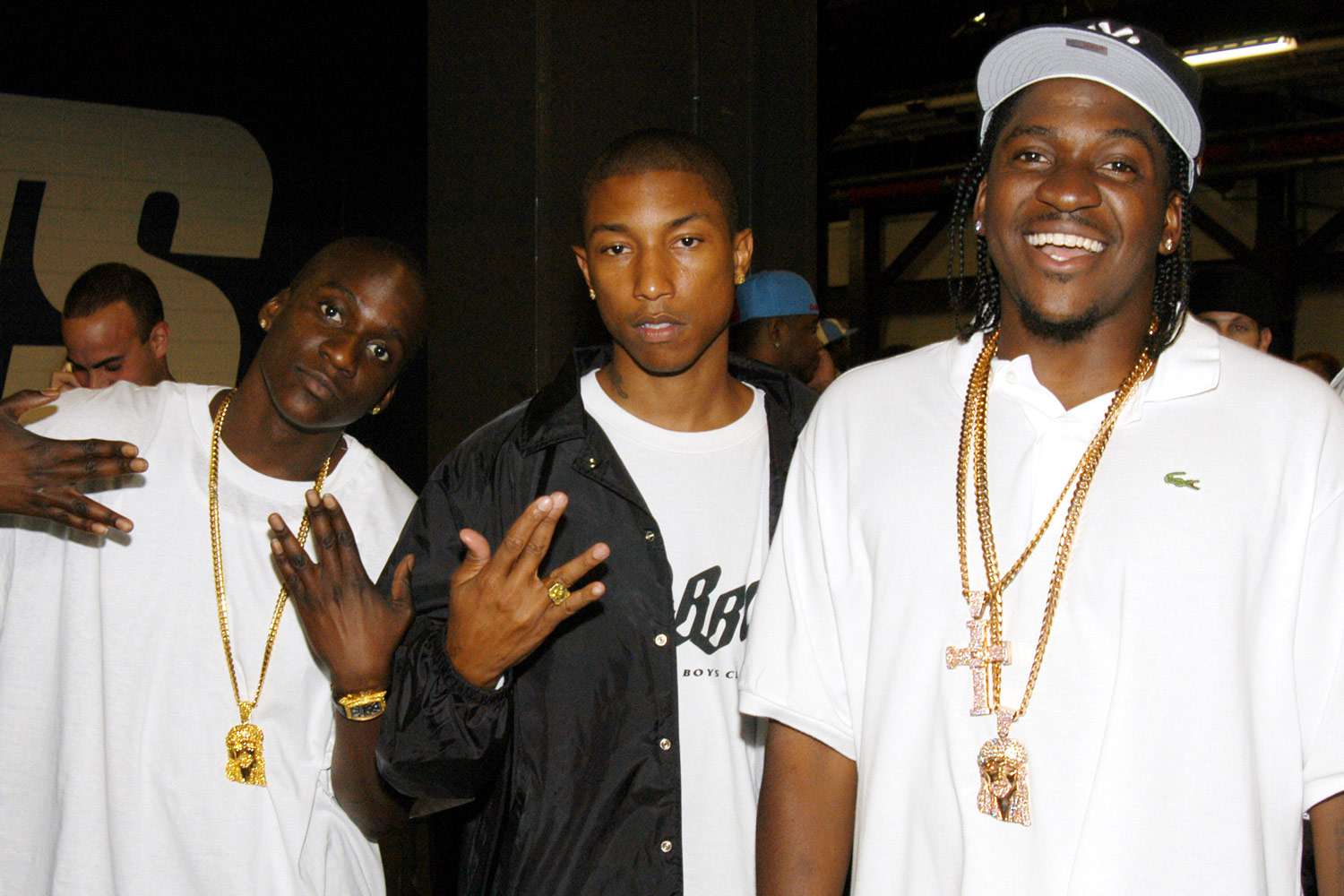
The Verdict: Respect is a Currency
The Clipse rollout worked because it was built on a foundation of respect for their artistry, their audience's intelligence, and the cultural weight of a moment. And let’s talk about that artistry for a second. We’re talking about two men well into their careers, with Gene "Malice" Thornton now 52 years old.
We’ve seen other legends hang it up well before this age. We had one of the greatest rappers of all time, Andre 3000, tell us he felt inauthentic rapping at his age and would have to make songs about getting colonoscopies, so he gave us a flute album instead.
And you know what? Fair enough. But the Clipse just provided the ultimate counter-argument. They proved you don’t have to trade the bando for a bingo hall, delivering a potent and unapologetically hard album that respects their own legacy.
They leveraged every modern tool, high-fashion collabs, and exclusive drops, but used them to serve an old-school purpose: building mystique and telling a compelling story. This wasn't just good marketing; it was a philosophy. It's a blueprint that I hope every artist, young and old, is studying right now because they didn't chase the culture, they made the culture come to them.
What's Your Take?
This is the kind of cultural autopsy we specialize in at the
Black Culture Geekz Substack. We don't just state the facts; we explore the flawed logic behind the headlines.
Did the Clipse provide the definitive blueprint for a legacy artist in the streaming era, or is this a lightning-in-a-bottle moment that only they could pull off?
What does it say about the state of the major label system that they had to buy their freedom to release their art uncensored?
Let us know your unfiltered thoughts in the comments. We read everything. If you appreciate analysis that cuts through the noise and gets to the heart of the matter, subscribe to the
Black Culture Geekz Substack. You'll get our weekly deep dives, exclusive show notes, and access to a community that loves to debate the culture on a higher level.
This Substack is reader-supported. To receive new posts and support my work, consider becoming a free or paid subscriber.
